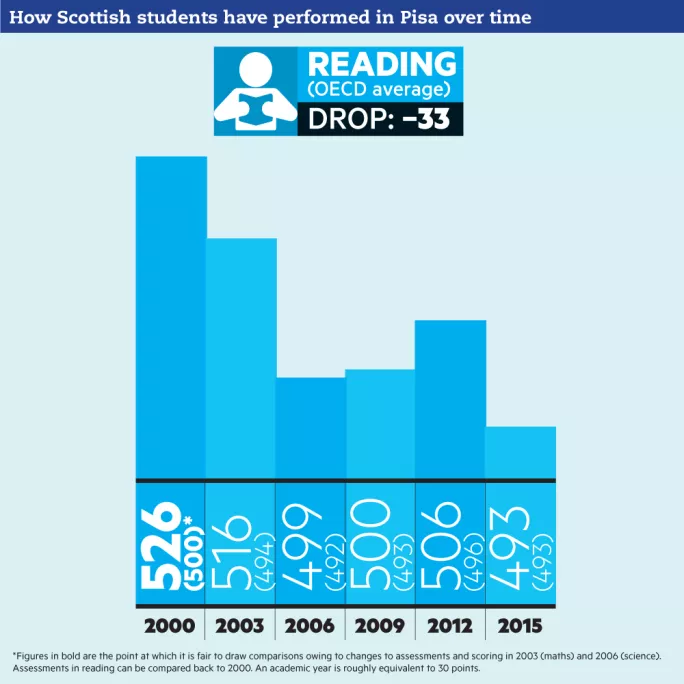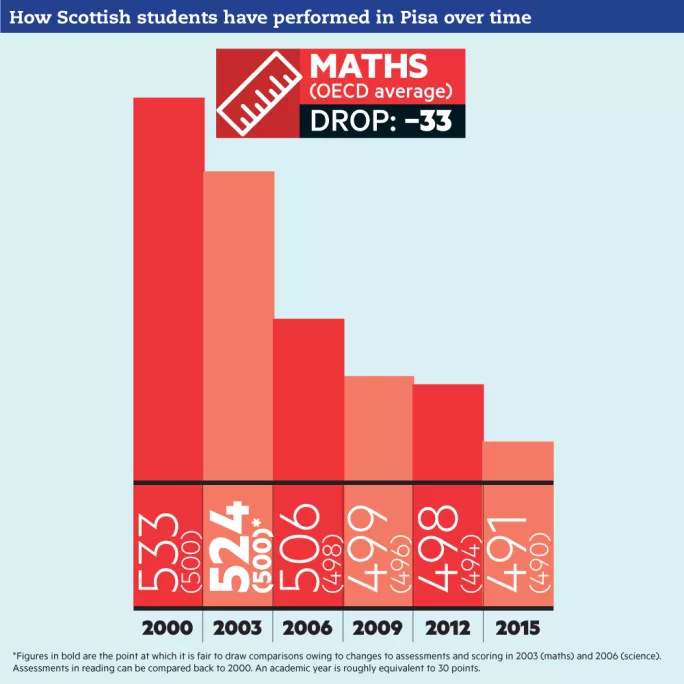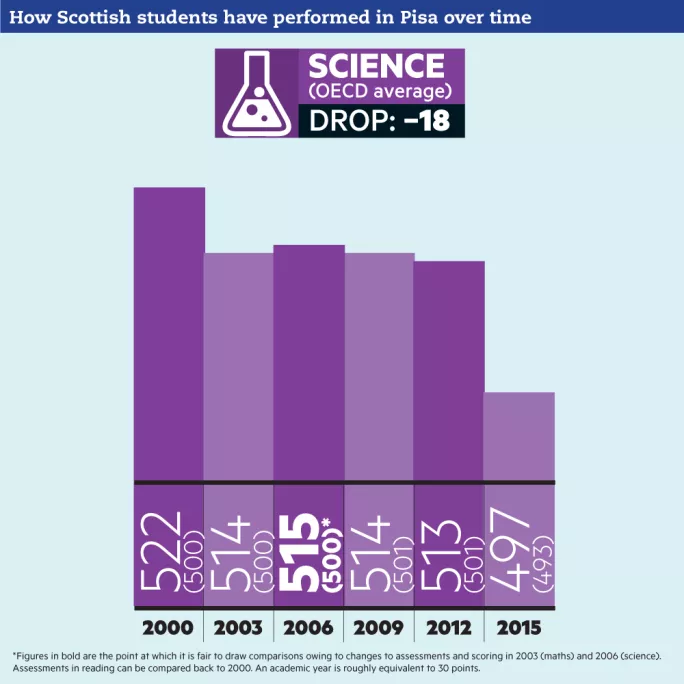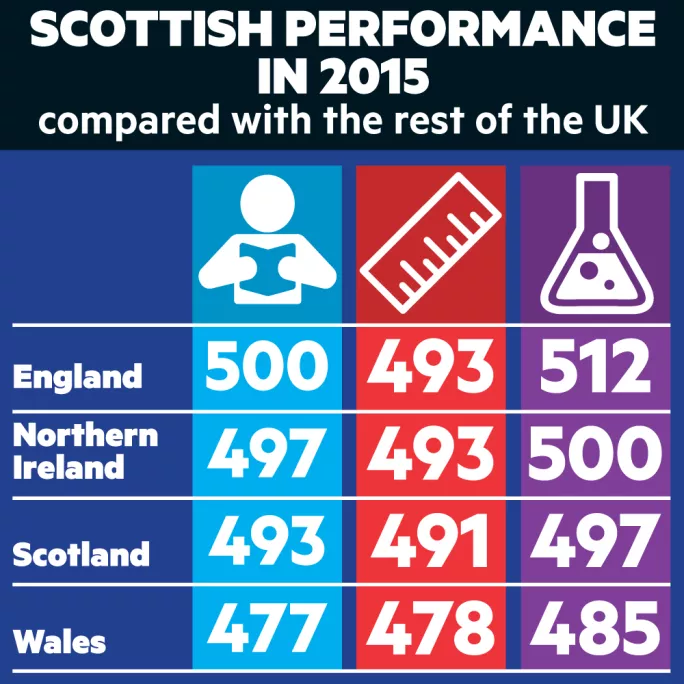‘Five years left’ to save CfE after Pisa plunge

There are “only five years left” to salvage Curriculum for Excellence, an expert has warned, after Scotland slumped in one of the world’s leading education rankings.
The new Programme for International Student Assessment (Pisa) results prompted education secretary John Swinney to say he would push ahead with “radical” and “controversial” reforms in an attempt to make CfE work.
One academic described the results as the “worst news for Scottish education in 30 years”.
Sharp declines in reading, maths and science scores for Pisa 2015 mean that Scotland ranks third of the four home nations in each category, with only Wales doing worse. In 2012, when the last Pisa tests took place, Scotland was top in reading and maths.
Internationally, the tests - sat by 15-year-olds in 72 countries and regions - show that Scotland is now considered “average” in reading, science and maths. In 2012, it was “above average” for reading and science.
‘The clock is ticking’
Keith Topping, professor emeritus of education at the University of Dundee, said there was a need for urgent action to ensure that CfE was a success. “I don’t think it’s a lost cause, but the clock is ticking,” he said.
The national debate that led to CfE took place in 2002. Professor Topping said: “You can’t expect any curricular initiative to have a shelf life of longer than 20 years. If you don’t get it right in the next five years, forget it.”
Another education academic, Professor Lindsay Paterson from the University of Edinburgh, said the Pisa results showed that CfE was “failing” and that they marked the worst news for Scottish education in his 30-year career. “What else has been as much of a shock to Scottish complacency as this announcement?” he asked.
Mr Swinney admitted the figures made for “uncomfortable” reading, but said he “wasn’t that surprised” by them, because the Pisa tests took place around the same time as the disappointing results of the 2015 Scottish Survey of Literacy and Numeracy.
He added that the results “underline the case for radical reform of Scotland’s education system”. This, he said, was already underway in the form of standardised national assessments, which will start in 2017-18.
“It is by carrying through on these reforms - no matter how controversial - that we can make Scottish education world-class again,” Mr Swinney said.
And he indicated that the government would be willing to make unpopular decisions in a bid to improve education. “A strength of Scotland’s education system has always been in collaboration, but we must now be clear: we must deliver the agenda for reform,” he said.
The government is in the midst of a school governance review and has raised the prospect of regional education boards. There will also be more flexible routes into teaching, and the door has not been closed on proposals for “state-funded autonomous schools”.
‘Increased investment’ needed
Unions indicated that the news from Pisa, which is run by the Organisation for Economic Cooperation and Development (OECD) came as no surprise, given the huge workload and assessment pressures on teachers.
The EIS said that Pisa provided “a clear indication of the need for increased investment in education”. But general secretary Larry Flanagan stressed that the tests had been taken almost 18 months ago, adding: “This was at a time, in 2015, when the upper secondary sector was undergoing major upheaval.”
Meanwhile, Maureen McKenna, president of education directors’ body ADES, said Pisa did not have the same resonance with the public in Scotland as it did in other countries, so teachers did not place the same emphasis on training pupils for the tests.




You need a Tes subscription to read this article
Subscribe now to read this article and get other subscriber-only content:
- Unlimited access to all Tes magazine content
- Exclusive subscriber-only stories
- Award-winning email newsletters
Already a subscriber? Log in
You need a subscription to read this article
Subscribe now to read this article and get other subscriber-only content, including:
- Unlimited access to all Tes magazine content
- Exclusive subscriber-only stories
- Award-winning email newsletters
topics in this article



